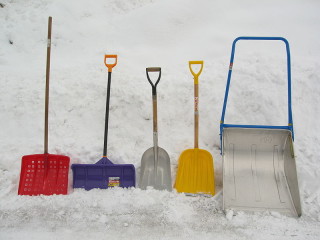What’s to Blame for the Polar Vortex?

As freezing temperatures break records and make headlines across the country, some wonder what’s behind the so-called polar vortex responsible for the frigid dips. The severe drop in temperature may not come as a complete surprise for many Americans, as 63 percent of people say the weather has been getting more extreme during the past few years, while six percent say it’s gotten less extreme and about 3-in-10 (29 percent) say it hasn’t changed.
While some argue the severe cold snap is evidence against global climate change, some research has shown a link between climate change and more intense weather patterns. Despite the unusually cold weather, most Americans believe the Earth’s temperature has been rising. Three-quarters (75 percent) of Americans say there’s solid evidence that the average temperature on the planet has been getting warmer during the past few decades, while 21 percent say there isn’t solid evidence to prove global warming. Of those who do believe there’s solid evidence pointing to the planet growing warmer over time, 60 percent say such climate change is caused mostly by human activity, such as burning fossil fuels, while about one-third (34 percent) say it’s caused mostly by natural patterns in the Earth’s environment.
Whatever the cause, most Americans (67 percent) say the government should do more to address the issue of climate change, while 31 percent disagree. But when asked how high a priority enacting climate change legislation should be for President Obama and Congress, few see it as imperative. Fewer than 1-in-5 (16 percent) Americans say climate change should be the top priority for the president and Congress. About one-third (31 percent) of Americans say it should be a high priority, but not the highest, while a majority (51 percent) of Americans say it should rank as a lower priority. Given the lacking urgency on the issue, it seems likely climate change will take a back seat to more high-profile topics, like immigration and health insurance, in the coming months. In the meantime, forecasters say Americans can look forward to thawing out with warmer temperatures later this week.

